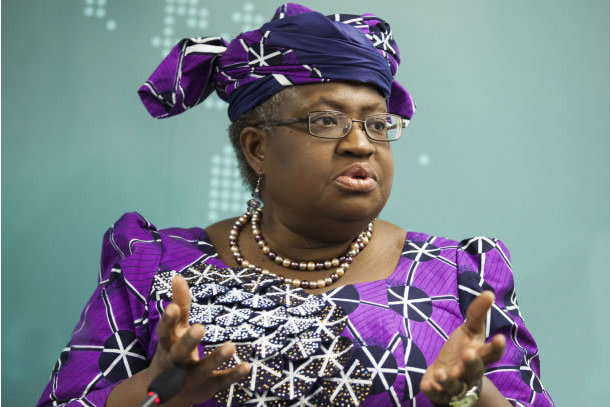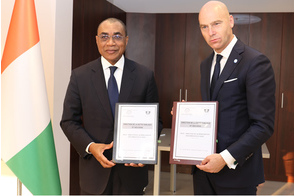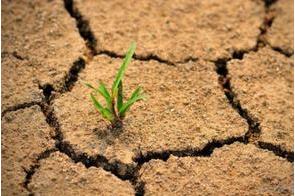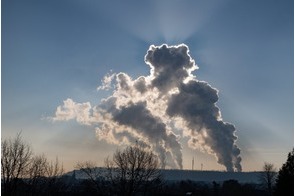Climate conversation needs to deepen in Africa – Okonjo-Iweala

Summary
People on the ground are feeling the impacts of the climate issues, but policymakers are not talking about it as much as I think we need to.
Ngozi Okonjo Iweala, Co-chair of Global Commission on the Economy and Climate, spoke with CNBC Africa’s Chris Bishop at the 2018 World Economic Forum in Davos, on the impacts and responses to climate change in Africa. Excerpts of the interview are published below, in line with the need to deepen climate conversation on the continent.
On how seriously climate risks are taken
I think the climate and environmental issues are really being taken seriously. From the survey of CEOs by the World Economic Forum, the report and some of the infographics they produced show there is a convergence of identified risks around climate issues. These issues cluster around the environment, natural resource management, disasters, climate change, and even water shortages. It is amazing that over the last two years the perception of risk has clustered around these issues. The CEOs said they see the biggest impacts of the climate risk on people’s lives.
On climate change in Africa
We have always said that even though the African continent was not primarily responsible for the high carbon emissions taking place in the world, Africans are suffering the largest impacts of changes in weather patterns and the environment. With droughts, for instance, millions of people are losing their livelihoods, livestock and crops. Food is affected, and people are dying.
One of the important responses to these in recent times was that the African Union formed the African Risk Capacity. The aim of ARC is to help African countries manage climate risk by transferring some of it through insurance to the private sector.
On whether the CEOs would put their money down to do something about the risk
I think it is very likely. The risk climate change poses to businesses is very considerable. Some businesses can be completely wiped out while others can lose significant market, if the necessary resources are not made available for climate change mitigation.
The businesses also need to look at the way they operate. For an infrastructure business, we need to look at how the projects are delivered. Are they being done in a low-carbon emission and sustainable way. It is also important to look at the environmental impacts of the projects. The businesses need to check that they are not part of the problem. However, I am really struck that top CEOs are taking the issues seriously and that also entails committing resources to the solutions.
On anticipated positive real changes in the coming years
I think there are several. CEOs are signing up to the Sustainable Development Goals of the United Nations. Commitment to the 17 SDGs is quite important in making a difference for the world and for poor people. There is also the Paris climate agreement. I think these two initiatives have made the private sector to understand that the issues are of existential importance. We are all in it together. Therefore, we all need to work together. With this realisation, we expect to see partnerships and coalitions for climate actions.
One of the things about Davos is that it brings people together, from civil society, business and government. No one actor can singlehandedly solve this problem. Governments cannot deal with the climate risk alone. The private sector cannot do it alone, and certainly not the civil society alone. But the combination of these actors, and putting in the necessary resources, can solve the problem.
People are losing their lives and many are suffering. The good news is that many businesses and governments are now saying this is real; we have to put money against it and we have to take actions. I am part of this new group, the New Climate Economy, which is a partnership between business, independent intellectuals, and governments. We are all coming together to say we can have better growth with better climate. So, the issue is how do we implement the actions that we are looking at in countries.
On political will in Africa to address the climate risks
I think we need to increase the conversation. Yes, I see more awareness, but I still think we have a long way to go. We need a very deep conversation on the continent, particularly around natural resource management. Some of the resources we have -- oil, gas and other mineral resources -- are what we export. This is the reality for many of our economies. Although some of these are high emission operations, that’s what we depend on.
However, we need a conversation on how we sequence and shape our actions so that increasingly we are managing these resources in ways that help the world in managing the emissions. I think the world has to be cognisant that Africa cannot change overnight.
I am not convinced that the awareness of the climate risk is as deep and high as it ought to be. People on the ground are feeling the impacts of the climate issues, but policymakers are not talking about it as much as I think we need to.
Related
-
Global Centre on Adaptation to Support Côte d’Ivoire on ESG projects
MoU aims to enhance and increase the share of adaptation and resilience investments financed by Côte ...
-
Scientists say 2018 was fourth warmest year on record since 1850
According to the Berkeley Earth’s report, 2019 is expected to be warmer than 2018.
-
Getting the social cost of carbon right
Spending money today on climate action is like buying an insurance policy.










